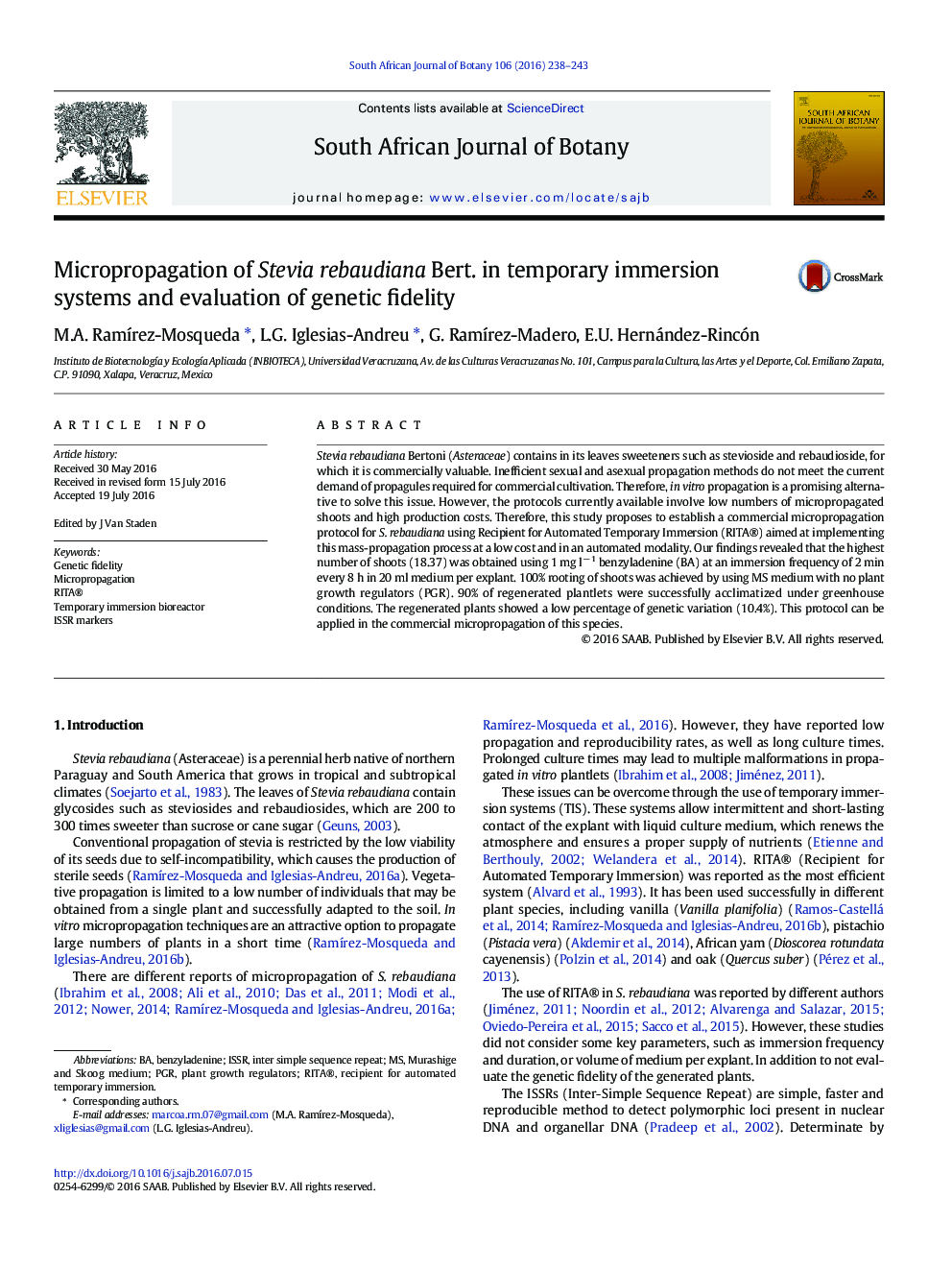| Article ID | Journal | Published Year | Pages | File Type |
|---|---|---|---|---|
| 4520211 | South African Journal of Botany | 2016 | 6 Pages |
•RITA® temporary immersion systems results in a large number of plants with high genetic fidelity•The combination of 1 mg L− 1 of BA, with a frequency of 2 min every 12 h generates a higher number of shoots.•High rates of rooting and acclimatization were obtained, ensuring the efficiency of the micropropagation by RITA®
Stevia rebaudiana Bertoni (Asteraceae) contains in its leaves sweeteners such as stevioside and rebaudioside, for which it is commercially valuable. Inefficient sexual and asexual propagation methods do not meet the current demand of propagules required for commercial cultivation. Therefore, in vitro propagation is a promising alternative to solve this issue. However, the protocols currently available involve low numbers of micropropagated shoots and high production costs. Therefore, this study proposes to establish a commercial micropropagation protocol for S. rebaudiana using Recipient for Automated Temporary Immersion (RITA®) aimed at implementing this mass-propagation process at a low cost and in an automated modality. Our findings revealed that the highest number of shoots (18.37) was obtained using 1 mg l− 1 benzyladenine (BA) at an immersion frequency of 2 min every 8 h in 20 ml medium per explant. 100% rooting of shoots was achieved by using MS medium with no plant growth regulators (PGR). 90% of regenerated plantlets were successfully acclimatized under greenhouse conditions. The regenerated plants showed a low percentage of genetic variation (10.4%). This protocol can be applied in the commercial micropropagation of this species.
